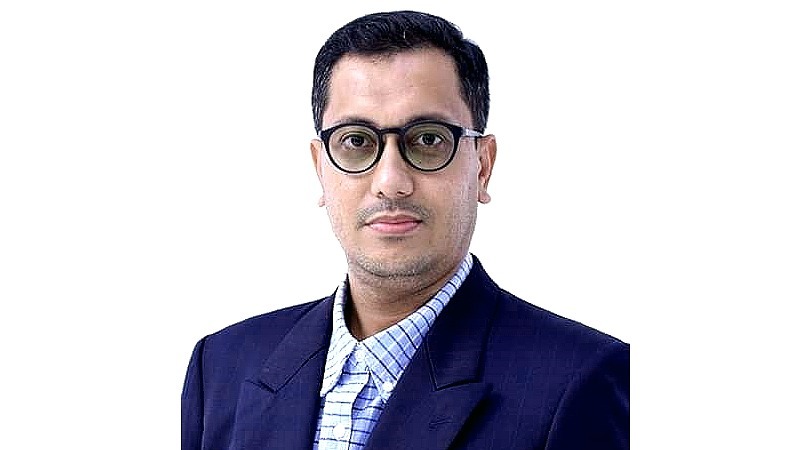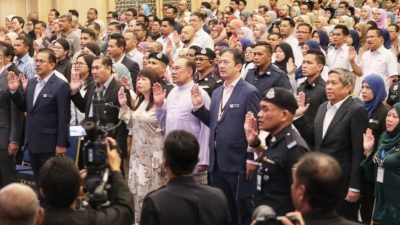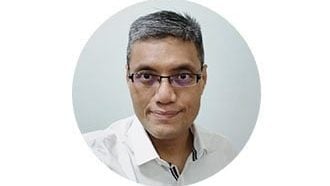
The ownership of ICT devices such as mobile phones and computers (personal computers, laptops and tablets) is rapidly increasing in Malaysia.
The post-pandemic era has brought some positive effects in the area of digital technology, as seen in the surge in the percentage of computer and mobile phone ownership by Malaysian households and individuals.
According to the ICT Access and Use Report 2022 by the Department of Statistics Malaysia (DOSM), access to computers by Malaysian households was around 91.3 percent, while that of mobile (smart) phones was 99.3 percent, and 96 percent for internet access, including fixed-wired broadband and mobile broadband.
Moreover, the report also highlighted the usage of computers, mobile (smart) phones and internet by individuals in Malaysia.
It was shown that mobile phone usage was highest at 99.1 percent, followed by internet at 97.4 percent and computers at 80.2 percent.
Internet coverage by strata showed above 80 percent in both urban (98.1 percent) and rural (89.1 percent) areas.
Recently, the government launched the integrated system of Central Database Hub (PADU) on 2 January 2024 in Putrajaya.
This database hub was initiated by the current Madani Unity Government.
Prime Minister Datuk Seri Anwar Ibrahim highlighted the three objectives of PADU. The first objective is to provide a national database hub with safety, security, comprehensive and “near real time” for the accurate process of digitalisation and data analytics.
Secondly, to draft future national policies where government decisions align with PADU.
Thirdly, to accommodate government policy implementation given to targeted groups of society with regards to socioeconomic benefits and fiscal outlook.
The personal profiles and data of Malaysian citizens and permanent residents above the age of 18 as well as their household members will be safely and securely ensured by CyberSecurity Malaysia.
This newly launched Central Database Hub (PADU) is on its way to reaching one million registrations by this weekend.
Looking into the response and enthusiasm so far, the number of registrations will be hitting one and a half million by next weekend.
According to DOSM Chief Statistician Datuk Seri Mohd Uzir Mahidin, registrations had received 612, 807 nationwide as of 5 January.
Selangor recorded the highest number of registrations (148,547), followed by Johor (66,036), Perak (55,865), the Federal Territory of Kuala Lumpur (44,359) and Sabah (41,482).
The trend of high number of registrations hopefully addresses in other states as well. We could see the process of digital inclusion is gradually narrowing the digital gap between Peninsular and Eastern Malaysian states.
However, people also experience some issues with registration and updates in PADU.
Those living in rural and remote areas of Sabah, Sarawak and other states have come across digital accessibility issues.
In addition to that, some in rural and remote areas also have transportation issues to the nearest government agencies, digital economy centres (PEDi) and rural transformation centres (RTC) in order to register and update their PADU database.
For instance, someone from Song district in Sarawak needs to take a Rajang River boat either to Pekan Kapit or Pekan Kanowit, as the Song district PEDi is not yet active at this moment.
To reach maximum registrations by 31 March or within two months, the government should perhaps consider two conditions.
Firstly, to extend the deadline for registration and updates for people living in rural/remote areas, as they require more time for the process. These people face internet coverage and ICT device issues in their areas.
Likewise, the Jelajah (flying squad) team also needs time to identify loopholes in the affected areas.
Secondly, Members of Parliament and assemblymen must visit and check the PADU registration and update processes in their respective constituencies.
We, the rakyat, definitely support PADU for the betterment of our beloved nation.

(Dr. Sayed Mohammad Reza Yamani Sayed Umar is Research Fellow at Ungku Aziz Centre for Development Studies, Universiti Malaya.)
ADVERTISEMENT
ADVERTISEMENT








































